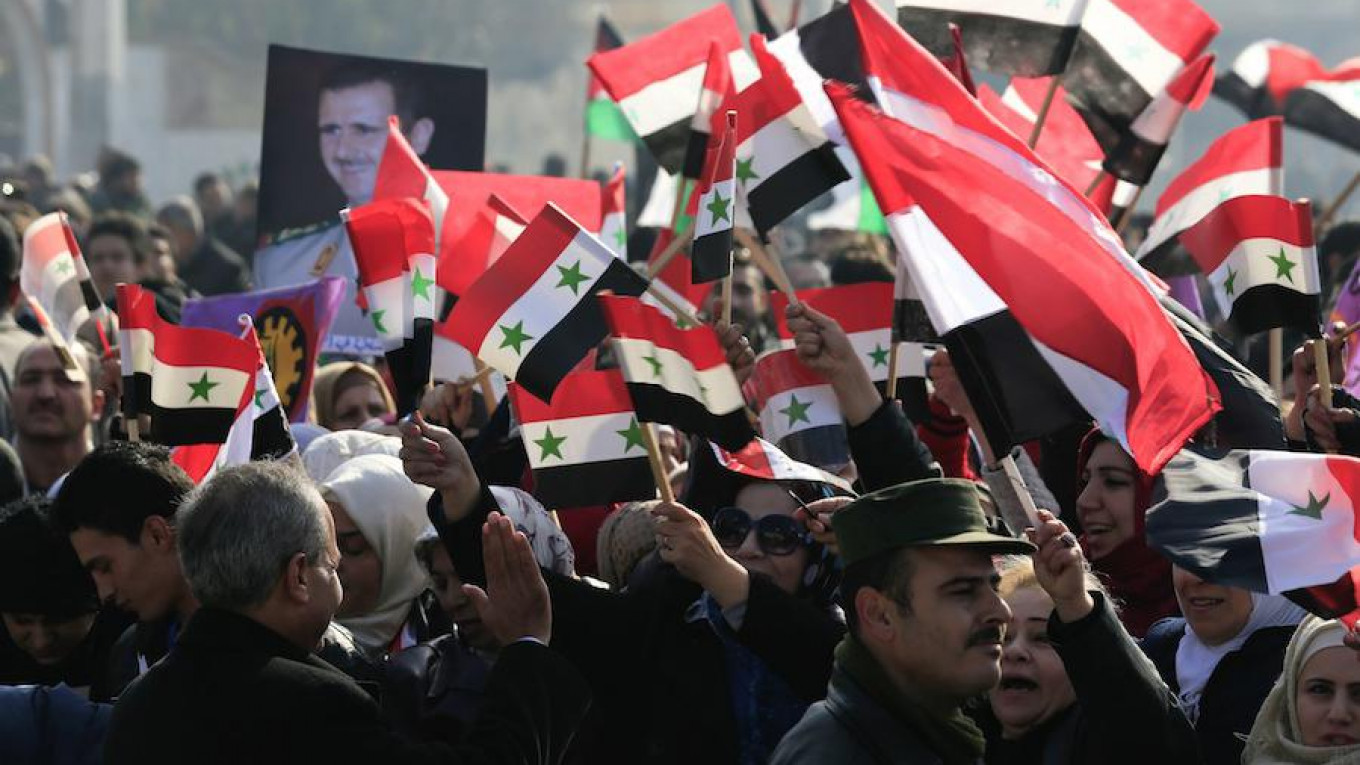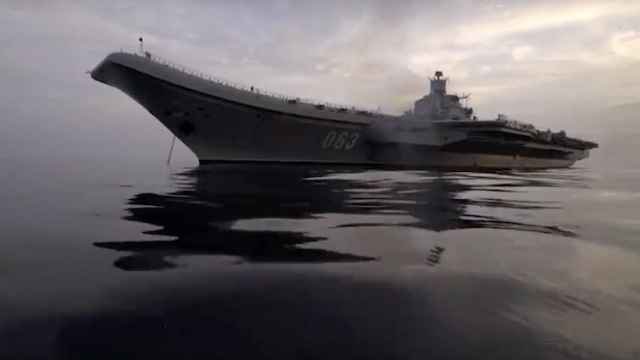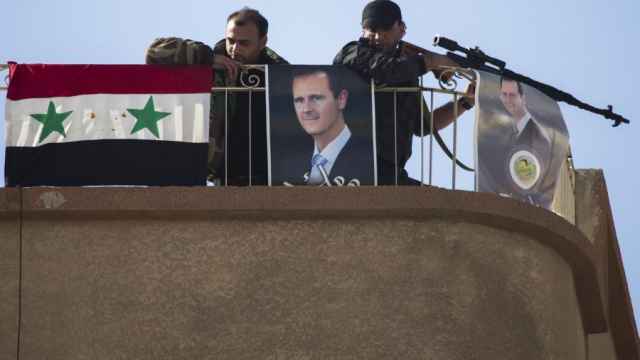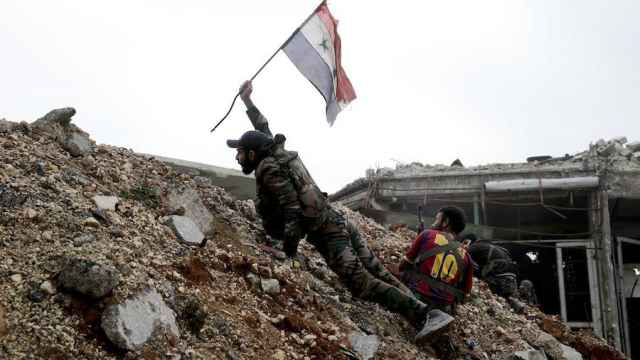The Syrian talks in Astana ended without much of a breakthrough. Russia, Turkey and Iran, who co-sponsored the meeting, issued a boilerplate statement pledging to observe, adhere to and “determine all modalities of the ceasefire.”
The ceasefire in place since Dec. 29, 2016 has largely held with the exception of areas around Damascus. Although the statement was not signed by the Syrian regime delegation or the opposition delegation (which presented Russia and Turkey with its own version of the ceasefire implementation procedures) the talks may come to represent a milestone on the path to a final settlement of Syria’s civil war.
The purpose of the negotiations, which marked the first time that Syrian government officials met representatives of the main armed groups, was to focus on the military details of the ceasefire, which is needed to create space to negotiate a political settlement.
Although there are concerns that the “Astana process” may somehow supplant the UN-led “Geneva process,” the Astana statement endorses the U.S.-led political process based on the UNSC Res.2254, which continue Feb. 8.
The talks in Astana were made possible by a pivot in Russia’s Syria strategy from military operations toward diplomacy, and more specifically towards engaging directly with the moderate armed opposition that Moscow denied even existed some months before. Having secured the survival of the Syrian regime through military intervention, Moscow’s primary interest now lies in ending the Syrian conflict.
As a way of maintaining leverage in Syria, Moscow is transforming itself from combatant to peacemaker (a role that it should have tried much earlier in the conflict). Even after its bombing campaign, Russia — with Turkish backing — enjoys more credibility with the armed opposition than Iran, and is now wielding soft power.
Russian state television has now ceased to refer to the armed opposition as “terrorists,” adopting a more neutral tone. Moscow even presented the opposition with the Russian blueprint of a future Syrian constitution, developed in 2016 in close partnership with the Obama administration in Washington. Russia is also reaching out to the political factions of the Syrian opposition, inviting the Cairo and Riyadh groups to Moscow to meet with Russia’s Foreign Minister Sergei Lavrov Jan. 27.
While Iran is betting on maintaining leverage in Syria the power through its militias, Russia is seeking to recreate a strong Syrian state with a monopoly over armed force, with the regime and the opposition sharing power.
Moscow’s efforts to put those local militias under a unified military command have been torpedoed by Iran, prompting the Russian military to train and equip its own Syrian ground units. Iran, its Shia militias and the Syrian regime have been responsible for the most serious violation of the Russia-Turkey backed ceasefire in Wadi Barada, a suburb of Damascus. No wonder the Syrian opposition groups in Astana refused to negotiate with Iran and insisted on removing Shia foreign fighters from Syria.
Moscow can live with a political settlement that leaves swaths of Syria under de-facto control of the opposition, provided they nominally “integrate” into the Syrian government structures (like Chechnya in Russia). Iran and Damascus, however, cannot accept a form settlement where any opposition autonomy could stand in the way of their complete military control over Syria.
The challenge for Moscow now is to find viable levers of control over the Syrian regime and its Iranian backers to enforce the ceasefire and pressure the sides into a political settlement. In a sign that Russia is serious about pressuring the Assad regime into making concessions, the Russian military issued a statement explicitly accusing the government of violating the cease-fire.
The United States has been sidelined from the talks in Astana, sending its Ambassador to Kazakhstan as an observer (EU states also sent observers). Moscow does not want the United States to actively shape the parameters of the political settlement which is now likely to see president Assad in power at least until 2021. But, it needs the United States and the EU to sign off on any future settlement, as well as areas under de-facto opposition control, for raising reconstruction funds from regional donors.
The Trump administration says it is willing to partner with Moscow to combat Islamic State and there are signs Moscow and Washington are already privately discussing and sharing targeting data through Turkey, since the US law bars the Pentagon from joint operations with the Russian military. Trump may waive those restrictions, but what the administration’s plan to “eradicate Radical Islamic terrorism from the face of the earth” will entail is anybody’s guess.
A Message from The Moscow Times:
Dear readers,
We are facing unprecedented challenges. Russia's Prosecutor General's Office has designated The Moscow Times as an "undesirable" organization, criminalizing our work and putting our staff at risk of prosecution. This follows our earlier unjust labeling as a "foreign agent."
These actions are direct attempts to silence independent journalism in Russia. The authorities claim our work "discredits the decisions of the Russian leadership." We see things differently: we strive to provide accurate, unbiased reporting on Russia.
We, the journalists of The Moscow Times, refuse to be silenced. But to continue our work, we need your help.
Your support, no matter how small, makes a world of difference. If you can, please support us monthly starting from just $2. It's quick to set up, and every contribution makes a significant impact.
By supporting The Moscow Times, you're defending open, independent journalism in the face of repression. Thank you for standing with us.
Remind me later.







